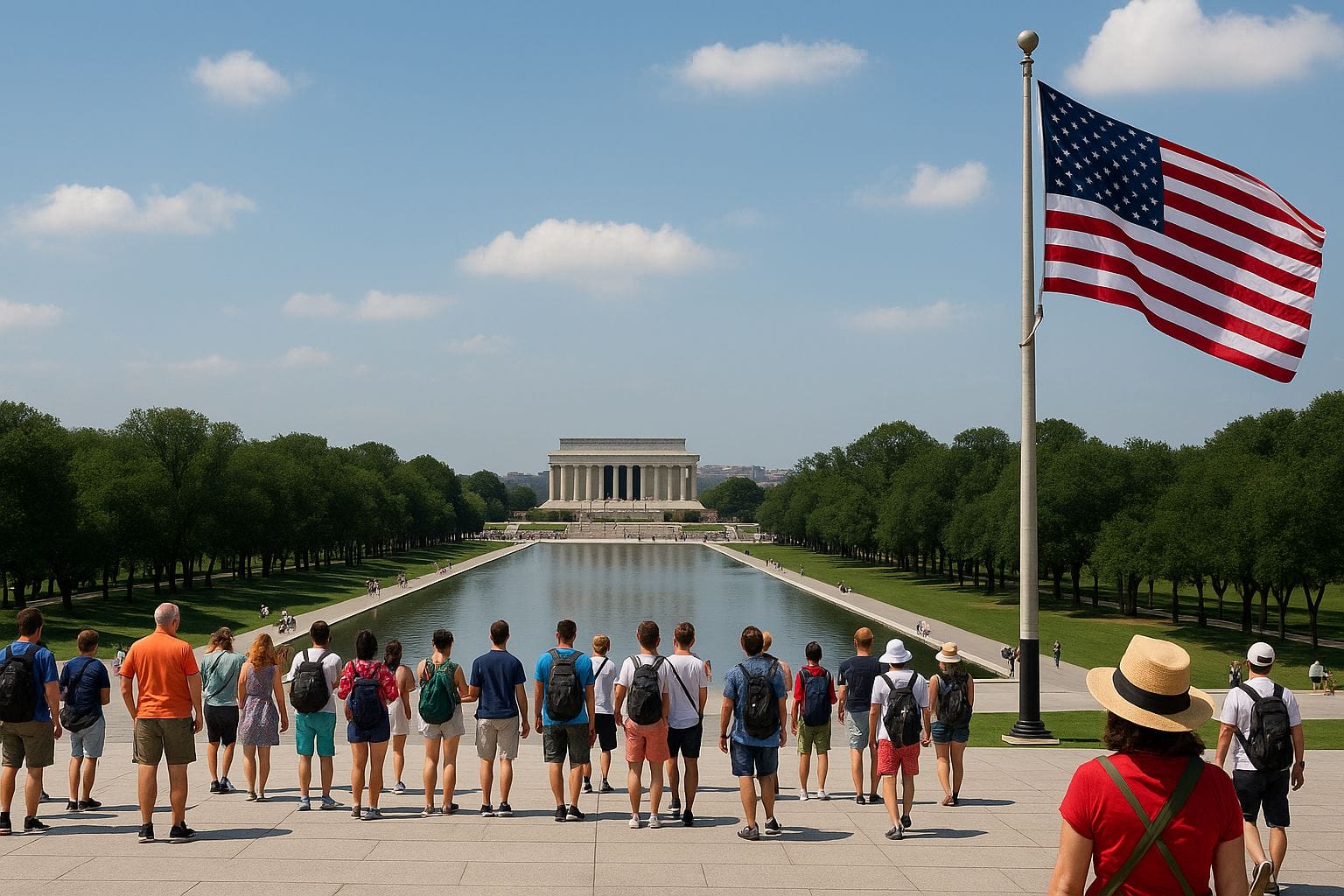With U.S. Independence Day on the horizon, the Netherlands is joining forces with a coalition of major European tourism leaders—including Canada, Greece, Portugal, Ireland, Spain, England, and France—to supercharge transatlantic travel just in time for the holiday rush.
In a coordinated effort to capture the attention of American travelers, these nations are deploying bold promotional strategies, tailored experiences, and immersive campaigns that align with what U.S. tourists crave: cultural depth, safety, sustainability, and seamless connectivity.
At the forefront of this movement, the Netherlands is setting itself apart with a uniquely comprehensive tourism vision that blends eco-conscious travel with luxury hospitality and regional exploration far beyond Amsterdam’s famous canals.
American Tourism Rebounds Beyond Pre-Pandemic Highs
Recent figures from the Netherlands Board of Tourism and Conventions (NBTC) reveal that U.S. visitors are back in droves. By the end of 2023, the Netherlands welcomed over 20 million international travelers, with Americans making up 8% of that influx—ranking among the top five global tourism markets for the Dutch.
The momentum has only intensified in 2024, with 51.7 million total overnight guests, over 21 million of whom were international visitors. This spike is largely credited to strategic travel marketing, ease of access through Schiphol Airport, and a growing appetite among Americans for European vacations timed around holidays like July Fourth.
From Amsterdam to Utrecht: The New Dutch Travel Trail
While Amsterdam still lures millions with its timeless allure—think Van Gogh Museum, canal cruises, and historic cobbled streets—the Dutch government is actively promoting travel beyond the capital. American travelers are now discovering Utrecht’s wharf cafés, The Hague’s sandy coastline, Rotterdam’s modernist skyline, and Friesland’s tranquil lake regions.
This decentralized strategy aims to combat overtourism while introducing Americans to regions where Dutch culture, innovation, and community thrive.
Sustainable Travel Becomes a Selling Point
The Netherlands has doubled down on its “Perspective 2030” tourism blueprint, which balances economic gains with social equity and environmental preservation. Initiatives now embraced by Dutch tourism boards include:
- Enhanced national rail services to reduce emissions
- Widened bike routes connecting rural areas
- Restrictions on party tourism and short-term rentals in Amsterdam
These sustainable policies are striking a chord with U.S. tourists who increasingly consider climate impact when planning trips. Many are embracing cycling vacations, electric car rentals, and eco-conscious boutique stays across the country.
Fourth of July Campaigns: Targeted, Tailored, and Transatlantic
Timed to coincide with the American Independence Day holiday, the Netherlands has rolled out data-driven marketing across digital platforms. Through Instagram reels, TikTok travel diaries, and personalized itinerary tools, Dutch tourism boards are now reaching U.S. audiences in real time—with targeted messaging based on demographics, location, and even travel habits.
This Fourth of July push is not only about timing but storytelling. Themes of “freedom,” “exploration,” and “heritage” are woven into travel ads showcasing Dutch-American connections—from historic ties to shared values in liberal democracy and innovation.
European Solidarity: A Multi-Nation U.S. Tourism Strategy
The Netherlands isn’t going it alone. Its initiative is backed by a rising pan-European alignment, where destinations including Spain, France, Greece, Ireland, and Portugal are also crafting Fourth of July offers tailored to Americans.
- France is spotlighting luxury and culinary tours along the Loire and in Provence
- Spain is pushing experiential Flamenco holidays and offbeat Basque Country retreats
- Greece is bundling beach escapes with archaeological expeditions
- Portugal is offering American travelers eco-resorts and Douro River wine cruises
- Ireland and England are launching “heritage tourism” packages that trace U.S. ancestry roots
This cooperative positioning turns July Fourth into a transatlantic tourism opportunity, not just a domestic holiday.
U.S. Travelers Now See the Netherlands as a Safe, Smart Destination
Part of the Netherlands’ charm for American visitors lies in its accessibility and ease of navigation. Over 90% of Dutch citizens speak fluent English, and the country’s rail network allows Americans to visit multiple cities with ease and comfort.
Major U.S. cities such as New York, Boston, Chicago, and Los Angeles are well-connected to Amsterdam via daily direct flights, further supporting spontaneous July travel decisions.
Safety, a top concern among U.S. travelers, also works in the Netherlands’ favor. Low crime rates, clean cities, and well-organized infrastructure make it one of the most stress-free European destinations for families and solo travelers alike.
A July Travel Surge with Long-Term Implications
As the U.S. tourism surge coincides with Independence Day celebrations, the Netherlands and its European allies are banking on more than just holiday dollars. They’re investing in long-term traveler loyalty from a U.S. audience that’s showing a renewed appreciation for meaningful, authentic, and sustainable European journeys.
With growth projections showing US$11 billion in tourism revenue by 2025, the Netherlands’ approach could redefine not only how Americans see the country—but how the world views tourism diplomacy in a post-pandemic, climate-aware era.
Conclusion:
This Fourth of July, Americans aren’t just barbecuing in backyards—they’re booking canal cruises, cycling through tulip fields, and sipping Dutch craft beer in local haunts. Thanks to savvy partnerships and a reimagined approach to U.S. tourism, the Netherlands and its European neighbors are poised to become the epicenter of American holiday travel in 2025—and beyond.
For more travel news like this, keep reading Global Travel Wire















